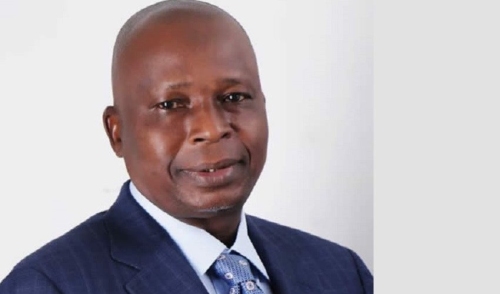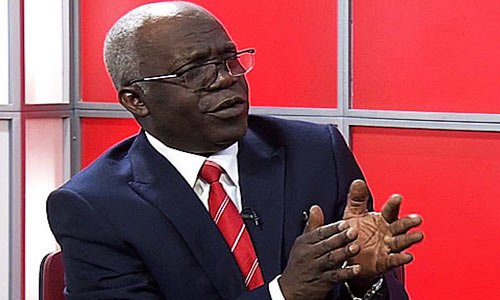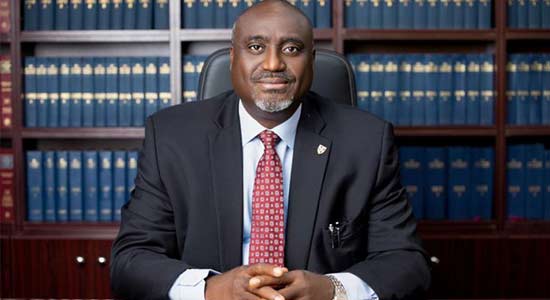COVER STORY INNER BAR 10/12/2023
Tinubu Determined to Strengthen Anti-corruption Fight – Fagbemi

The Attorney General of the Federation and Minister of Justice, Mr. Lateef Fagbemi (SAN), has said that President Bola Tinubu is determined to strengthen the fight against corruption.
Nigeria has also so far been able to recover and mobilise $7.2 billion through years of extensive independent reports by the Nigeria Extractive Industries Transparency Initiative (NEITI), the organisation’s Executive Secretary, Dr Ogbonnaya Orji, has said.
The United States has also reiterated its commitment to working with the government of Nigeria and international partners to reinforce anti-corruption efforts in the country.
Fagbemi, who made the disclosure in Abuja while speaking at the United Nations International Anti-corruption Day 2023, with the theme: ‘UNCAC at 20: Uniting the World Against Corruption,’ said the framework for the implementation of the National Anti-Corruption Strategy (NAC) was focused on five pillars which serve as the driving force for both the public and private sectors.
He listed them to include the prevention of corruption; public engagement; campaign for ethical re-orientation; enforcement and sanction as well as recovery and management of proceeds of crime.
“After a successful election and transition, President Bola Tinubu is determined to strengthen the fight against corruption at all levels and ensure prudent utilisation of resources for sustainable economic growth and development.
“To ensure effective deliverables, my office has been charged with critical performance indicators which will ensure percentage implementation of the NACS and the coordination of mechanisms involved in the anti-corruption efforts. To this end, I signed a performance bond on November 3, 2023,” the minister added.
Fagbemi, who was represented by the Director of Planning, Research and Statistics at the ministry, Victoria Ojogbane, said the official launch of the NACS 2022-2026 by Tinubu; robust interface with the Governors Forum and activation of the anti-corruption funding framework were some of the activities lined up for immediate implementation.
Also speaking, Orji stated that despite the gains in recent years, the latest Corruption Perception Index (CPI) ranking of Nigeria 154 out of 180 countries clearly showed that the country was still far behind the destination in its fight against graft.
According to him, in the oil, gas and mining sectors and extractive industries generally, corruption remains a major constraint to the realisation of the impacts of the reforms recommended in NEITI’s series of industry reports.
The executive secretary explained that Nigeria was about the only resource-rich country confronted with the peculiar challenges of oil theft, pipeline vandalism, illegal mining and daylight stealing of solid minerals by foreigners with the collusion of Nigerians.
Quoting from its recently-released report, the NEITI boss reiterated that Nigeria lost over 619 million barrels of crude, valued at $46.16 billion or N16.25 trillion between 2009 and 2020, to oil theft alone.
In addition, Orji stressed that Nigeria lost 4.2 billion litres of petroleum products from refineries, valued at $1.84 billion at the rate of 140,000 barrels per day, from 2009 to 2018.
He explained that in the past five years, between 2017 to 2021, Nigeria recorded 7,143 cases of pipeline breakages, resulting in crude theft and product losses of 208.639 million barrels valued at $12.74 billion or N4.325 trillion.
Orji noted that the NEITI reports also disclosed that during the same period Nigeria spent over N471.493 billion to either repair or maintain the pipelines.
“The motive behind all these is simply to get wealthy without legitimate work. We, therefore, need to review our commitments and approach to the war against corruption.
“Our new approach requires closer partnerships, collaboration in sharing of information and data, human capital development and inter-agency cooperation in this direction,” Orji added.
Orji stated that NEITI’s reports can incentivise revenue generation from the sector and optimise the deployment of transparent mechanisms to ensure responsible utilisation of resources.
“Most importantly, the information and data we provide help to drive reforms and policy options for our country’s extractive sector from where we derive about half of the revenues that are deployed to provide for our citizens.
“Through years of extensive independent reports under the global EITI, NEITI’s reports have led to reforms in the extractive sector, revenue recovery, mobilisation and growth to the tune of over $7.2 billion through inter-agency collaboration, as well as verifiable and credible public awareness of the extractive industry’s financial flows.
“The EITI/NEITI process complements the government’s efforts at improving transparency in mineral resource governance, establishes and sustains robust systems of accountability and opens dialogue for reforms and policy changes,” Orji added.
Also speaking, the Director of International Narcotics and Law Enforcement Affairs, United States Embassy, Nigeria, Jason Smith, reiterated the country’s commitment to working with the government of Nigeria and international partners to reinforce anti-corruption efforts in the country.
He argued that democratic societies are strengthened because citizens believe that elected governments serve the people and are imperilled when individuals serve their self-interests over the public good.
The United Nations Office on Drugs and Crime (UNODC) Country Representative, Dr Oliver Stolpe, who was represented by the Deputy Country Representative, Danilo Campisi, commended Nigeria for being one of the countries that have been active in the Implementation Review Mechanism (IRM) process.



